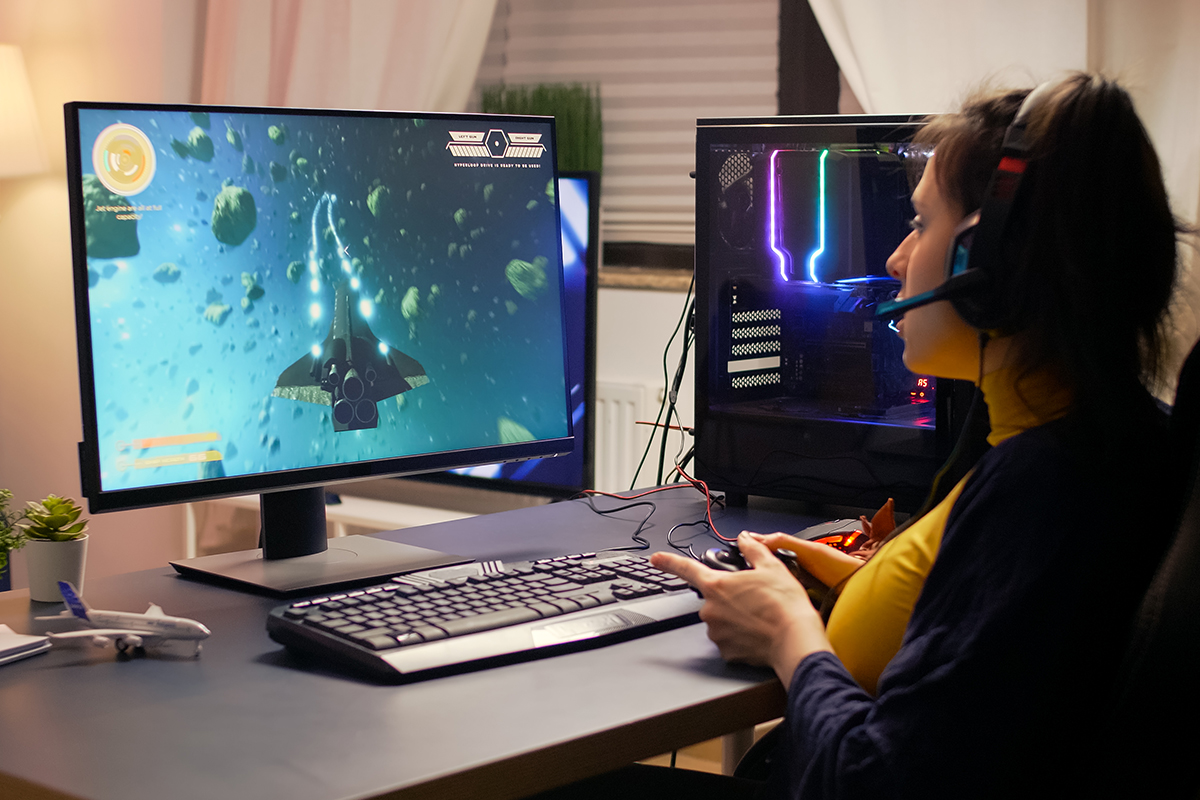A gaming PC is a high-tech machine designed for top performance in gaming. Unlike regular PCs, gaming computers feature more powerful components that allow them to handle modern games at high graphic settings. The question is, how do you choose the right gaming computer? Let’s break it down.
Processor: The Heart of a Gaming PC
The processor (CPU) is one of the most important components of a gaming PC. It is responsible for executing commands and processing data, and it directly affects the overall speed of the system. In modern games, the processor plays a vital role, as many games rely heavily on it to handle game logic, physics, and artificial intelligence.
Which Processor to Choose for Gaming?
When choosing a gaming PC, it’s important to pay attention to the number of cores and threads in the processor, as well as its clock speed. The more cores and higher clock speeds, the faster the processor can handle multitasking and complex computations, especially in open-world games with many objects on the screen.
For most modern games, it is recommended to choose processors with at least four cores and eight threads, although for more demanding games, a six-core or eight-core processor may be necessary.
Graphics Card: The Foundation of Graphics Performance
If the processor is the brain of the computer, then the graphics card (GPU) is its graphical heart. The graphics card plays a key role in rendering graphics, which determines image quality, detail, and the smoothness of the gameplay.
Which Graphics Card is Suitable?
For modern games, the graphics card needs to be powerful enough to handle high resolutions and graphically demanding games.
Its main characteristics are the amount of video memory, clock speed, and support for technologies such as ray tracing. Graphics cards with large amounts of video memory (6 GB or more) perform better when rendering high-resolution textures and can run games on ultra settings.
It is recommended to choose graphics cards from the mid to high range. If you are playing at a resolution of 1080p, mid-level graphics cards will provide excellent quality and smooth performance at high settings. For 1440p and 4K resolutions, a more powerful graphics card with larger memory will be required.
RAM and Storage
RAM (Random Access Memory) is an important component of a gaming PC that determines the speed of real-time data processing. For modern games, the minimum required amount of RAM is 8 GB, but for more comfort and multitasking, it is better to choose 16 GB or even 32 GB of RAM.
Why is RAM so important?
RAM allows the computer to load game resources faster and ensures smoother gameplay. A larger amount of RAM enables you to run multiple applications simultaneously without affecting the performance of the game.
What Storage Size Should You Choose?
As for storage, it is important to use an SSD (Solid State Drive) for installing the operating system and games. SSDs provide much faster loading speeds compared to traditional HDDs, significantly speeding up game launches and reducing loading times within games.
The optimal setup would be a combination of an SSD for main games and the system (for example, with a 500 GB capacity) and an HDD for storing files and media (1 TB or more).
Cooling and Case of a Gaming PC
Gaming PCs generate a lot of heat, especially during long gaming sessions. Therefore, when choosing a gaming PC, it is essential to pay attention to the cooling system.
What to Look For?
A well-ventilated case should ensure adequate airflow and have intake and exhaust fans. This helps maintain a normal temperature inside the system and prolongs the lifespan of the components. An ideal case for a gaming PC should also be spacious enough to allow easy access to components for upgrades or replacements.
Power Supply Unit (PSU)
The power supply (PSU) is a component that is often overlooked but plays an important role in the stable operation of the system. It is important to ensure that the power supply provides enough power for all components of the computer, especially for powerful graphics cards and processors.
What Power Rating Should You Choose?
The power rating of the PSU should be chosen with some overhead to allow for easy future upgrades of components without needing to replace the power supply. For most gaming systems, a power supply with 600-750 watts is sufficient, but for high-performance systems, a more powerful unit may be needed.
Each element of a gaming PC needs to be balanced to ensure stable and comfortable performance in modern games.


